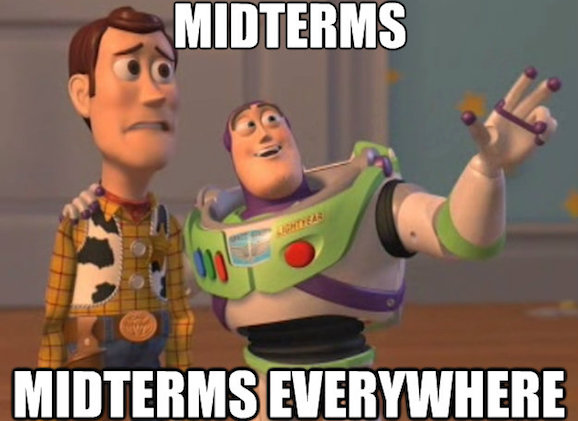My Favourite Professors
As a University student who has just finished their second year, I have had 16 professors.
In my opinion, and that of many of my other university friends, professors make or break the enjoyment of a class experience. There is a big difference between professors who are trying to make a living and professors who are actively trying to engage their class. In this day and age the mark that a student receives does not distinguish a good professor.
1. An engaging leader/educator must express passion. When the teacher is not passionate about their work, their students, or exploring new concepts, they express a lack of engagement with the class, resulting in less engaged students. I believe the more engaged the teacher is with the content and class, the more students will get out of their expensive three months.
2. An engaging professor should act as a leader and a learner. If a professor is truly passionate about what they teach, they will actively engage in learning from their students. If a professor is not expressing that they are learning with their students, this may express a social hierarchy construct, expressing that the leader knows more, thus is better and should be idolized. If a teacher shows that they are continuously learning, this furthers their human-ness, showing that humans are constantly learning.
3. An engaging teacher is open minded. They don’t limit a student’s potential to their single way of thinking. They see a student’s opinion with value and gives them the opportunity to explain their perspective. These teachers give their students assignments that contains an invitation to add and express their own perspective in the final product.
I have created a list of my favourite arts professors who have expressed passion towards teaching:
Gregory Scofield
- Constantly asked the class for feedback.
- Did weekly check-ins that gave every person a chance to tell the class how they’re doing outside of class, whether that be how their week’s going, how their mental state is, or any personal life acknowledgements.
- Created assignments that allowed for 100% student passion and personal expression.
Connor MacKinnon
- Dedicated a lot of his life to office hours and helping students with his assignments (including in person and online Zoom calls that were very accessible).
- Would do one on one check-ins with every student during every class.
Susan Olding
- Used writing prompts and activities to engage the class with a writing technique instead of verbally telling the class the writing technique.
- Expressed herself as both a leader and a learner, as she pointed out student’s perspectives as unique and insightful and acknowledged the various unique perspectives without putting hers or any other perspectives above others.
- Made mistakes and reminded the class that it’s part of being human.
- Asked every student to give their perspective, gave everyone a chance to speak and made the speaking time from people balanced rather than one student talking the most.
Natalie Leblanc
- Wants students to explore art in their own artistic process and voice.
- Assessed students on their process as much as, if not more than, the final art piece.
- Helped students create their personal art pieces that facilitated diving deeper into art concepts and curiosity, showing up both a learner and leader.
- Invited in learning to compliment everyone’s personal strengths.
Cliff Haman
- The most fun class I had because of his relaxed commitment, care and extravert energy (my favourite first year/ COVID online class EVER!)
- Gave the class a sense of community by complimenting every student’s art in class.
- Engaged with the group’s humour and dynamic.
Deborah Campbell
- Used discussions to open the class to each other’s perspectives and then ended with her perspective as a conclusion (learner and a leader).
- Encouraged the class to share their thoughts and questions as a class to reflect upon the finished assignments.
- Asked about the challenges and strengths after every assignment to have students hear about how their peers experienced the same assignment.
- Created a community in her classroom where people could openly express themselves and wanted to!
- Made sure every student had a chance to speak in discussion.
I believe an engaging professor is what creates a community within a classroom. A student can follow an assignment’s rules and receive a good grade, but not every student feels that they gained applicable knowledge about themselves and the world.
When a professor perceives a classroom as a space to learn rather than a constitution that pressures a certain mark or a wage, students feel that school matters.






